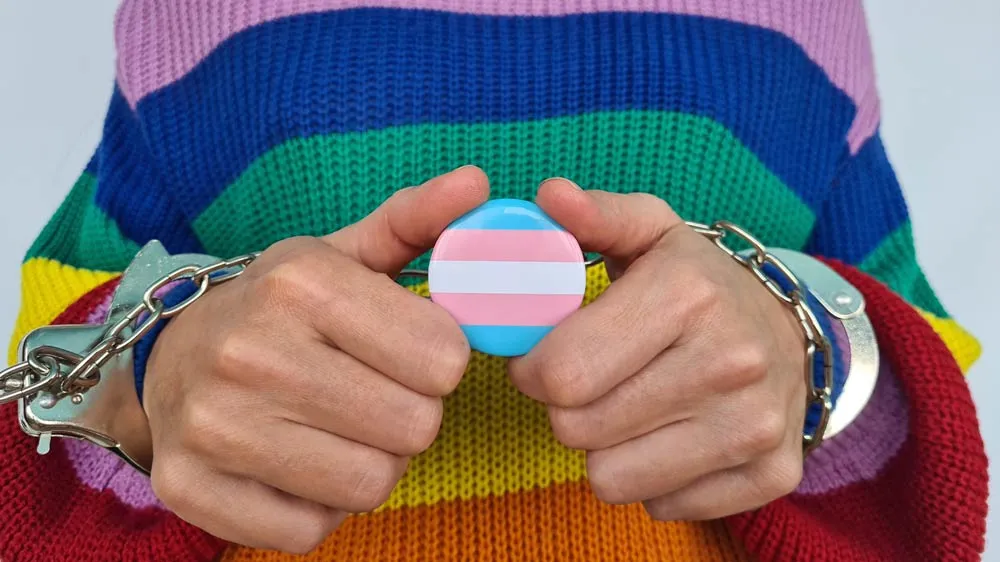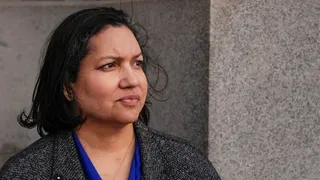April 2, 2012
Obama Could Face Election-Year Jam on Gay Marriage
Jason St. Amand READ TIME: 4 MIN.
PORTLAND, Maine (AP) - President Barack Obama could be caught in an election-year bind on gay marriage, wedged between the pressure of supporters who want him to back same-sex marriage and the political perils of igniting an explosive social issue in the midst of the campaign.
Interviews with gay rights advocates and people close to Obama's campaign suggest it is no longer a matter of if, but when the president publicly voices his support. But Obama backers are split over whether that will happen before the November elections.
Gay marriage is already a big issue in a handful of states that have it on their ballots in November, including Maine, where Obama was headlining two fundraisers Friday. The president also headlined fundraisers Friday in Vermont, one of six states, plus the District of Columbia, where gay marriage is legal.
But neither in Vermont nor in Maine did Obama touch on the issue during his public remarks.
Once an opponent of gay marriage, Obama declared in 2010 that his personal views on the subject were "evolving." He has gone no further in public since then.
People familiar with the Obama campaign's deliberations have tamped down expectations that the president might declare his support for gay marriage before the election. They say the campaign's internal conversations on the issue focus instead on how to energize gay and lesbian voters in spite of Obama's lack of clarity on the issue.
Public support for gay marriage is increasing in the U.S., including among the independent voters who are a key to general election success.
But regardless of whether Obama has made up his mind on the subject, it's not the topic his campaign wants to be talking about heading into an election expected to be decided largely on economic issues. As White House and campaign officials learned all too well during the controversy over birth control access earlier this year, stepping into social issues - even those with Democratic support - can quickly throw the president's message off course.
While Obama aides saw the contraception issue as an important appeal to women voters, there may be little election-year payoff for the president taking a stand on gay marriage.
Obama's record on gay rights issues, including the repeal of the military's ban on openly gay service members and an order for the Justice Department not to enforce a provision that defines marriage as between one man and one woman, has already solidified the overwhelming backing of gay rights supporters. Obama often highlights the end of the Clinton-era "don't ask, don't tell" policy on gay military service, a surefire applause line with his supporters.
"Change is the fact that for the first time in history you don't have to hide who you love in order to serve the country that you love," he told a campaign crowd at Southern Maine Community College. "We ended 'don't ask, don't tell.'"
His Republican rivals, including GOP front-runner Mitt Romney, not only oppose gay marriage, but also some other legal protections for gays and lesbians.
As for Obama, "the gay rights community is now enthusiastically in his corner in terms of the re-election, so the pressure to deliver before the election is off," said Richard Socarides, a prominent gay rights advocate.
The risk in Obama publicly backing gay marriage before the election is that it could become a rallying cry for conservatives who have thus far been reluctant to get behind Romney.
Still, many Democrats and gay rights advocates believe Obama may end up being forced to take a position on the issue before November.
The most pressing effort comes from within Obama's own party. Several high-profile Democrats, including House Minority Leader Nancy Pelosi, Los Angeles Mayor Antonio Villaraigosa and more than 20 Senate Democrats, want support for gay marriage added to the party's election platform. The platform will be adopted at the Democratic National Convention in early September, where Obama will accept the presidential nomination.
So far, Obama advisers have sidestepped questions about whether he would support a gay marriage plank on the platform.
"We don't even have a platform committee yet, much less a platform," Obama senior adviser David Plouffe said in a television interview.
A person close to the Obama campaign said the president's re-election team is wary of the platform effort and prefers to let the president move on the issue at his own pace.
People familiar with the campaign's thinking requested anonymity in order to discuss internal strategy.
Gay rights advocates hope state ballot initiatives on gay marriage, like the one in Maine, could force Obama to weigh in, as he has on other state issues.
"He's going to be in a lot of situations like this where the issue becomes unavoidable," said Socarides, a former Clinton White House official. "Even though he might want to avoid this, I think he's going to come up right against it in so many situations in the next couple of months."
Obama's reluctance to embrace gay marriage has increasingly put him at odds with a majority of Americans. A Washington Post/ABC News poll this month found that 52 percent felt it should be legal for gay and lesbian couples to get married, while 43 percent said it should be illegal.
Support for gay marriage is highest among Democrats, with 64 percent supportive of the issue. Just over half of independents - 54 percent - back legalized gay marriage, according to the Post/ABC poll. Support among Republicans is the lowest, at 39 percent.
Gay rights advocates say those numbers - particularly the growing support among independents - suggest there would be little political risk for Obama in backing gay marriage. And they say taking a stand in an election year could help boost enthusiasm among gay voters and young people, two core Obama constituencies.
Obama campaign spokesman Ben LaBolt said the president's evolution on gay marriage will be personal, not political.
"The president and the president alone will come to a decision," LaBolt said.
Maine's state Legislature approved gay marriage in 2009, but voters rejected it 53 percent to 47 percent that November. Gay marriage supporters believe enough people have changed their minds that the outcome will be different this time around.






